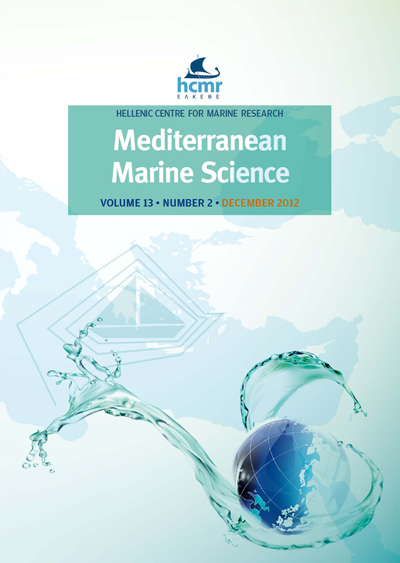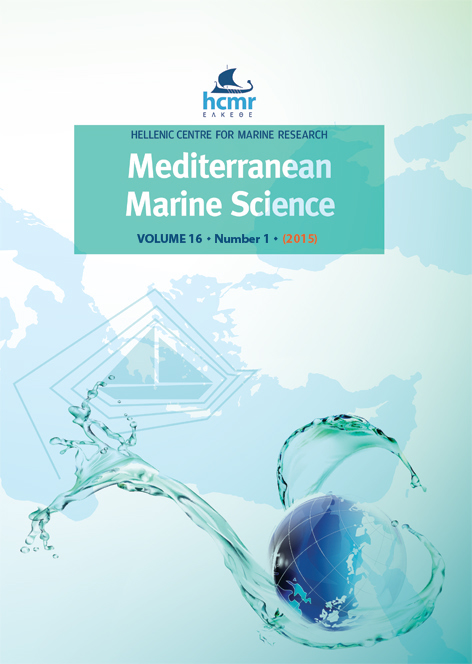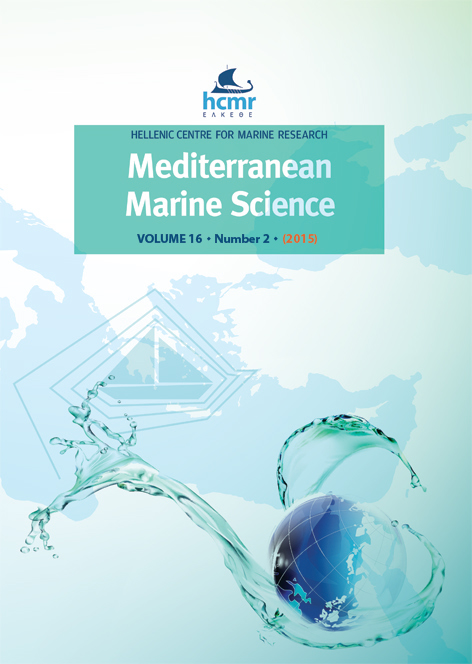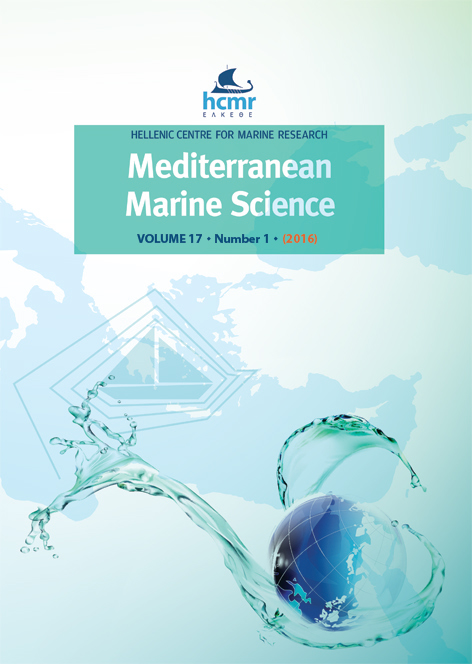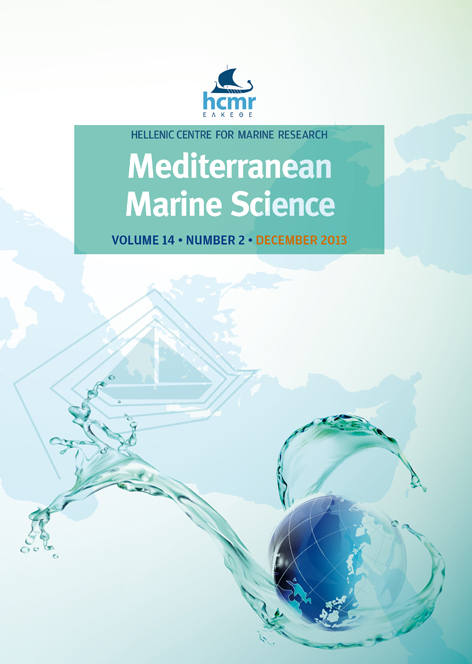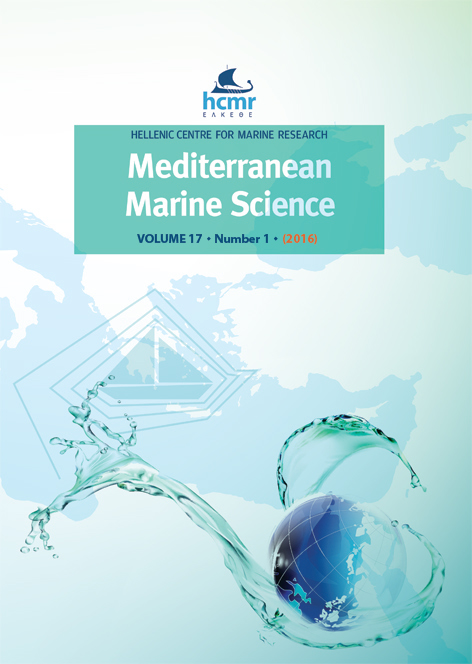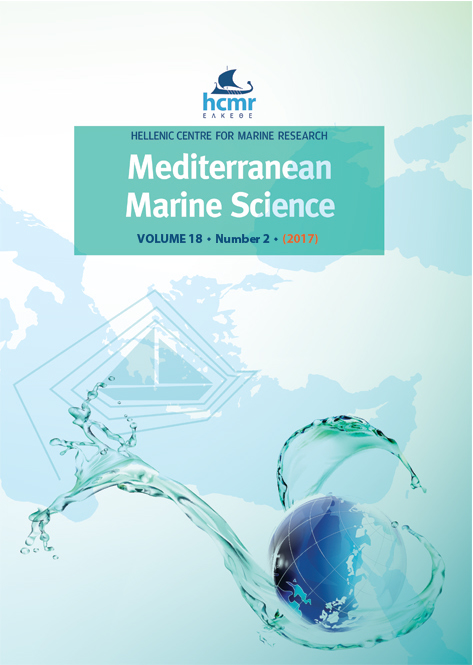Y. ISSARIS
Hellenic Centre for Marine Research, Institute of Marine Biological Resources, Agios Kosmas, P.C. 16610, Elliniko, Athens
S. KATSANEVAKIS
European Commission, Joint Research Centre, Institute for Environment and Sustainability, Ispra
M. PANTAZI
Hellenic Centre for Marine Research, Institute of Marine Biological Resources, Agios Kosmas, P.C. 16610, Elliniko, Athens
V. VASSILOPOULOU
Hellenic Centre for Marine Research, Institute of Marine Biological Resources, Agios Kosmas, P.C. 16610, Elliniko, Athens
P. PANAYOTIDIS
Hellenic Centre for Marine Research, Institute of Oceanography, P.O. Box 712, P.C. 19013, Anavyssos, Attiki
S. KAVADAS
Hellenic Centre for Marine Research, Institute of Marine Biological Resources, Agios Kosmas, P.C. 16610, Elliniko, Athens
A. KOKKALI
Hellenic Centre for Marine Research, Institute of Marine Biological Resources, Agios Kosmas, P.C. 16610, Elliniko, Athens
M. SALOMIDI
Hellenic Centre for Marine Research, Institute of Oceanography, P.O. Box 712, P.C. 19013, Anavyssos, Attiki
A. FRANTZIS
Pelagos Cetacean Research Institute, Vouliagmeni
A. PANOU
Archipelagos – environment and development, Kifissia
D. DAMALAS
European Commission, Joint Research Center, IPSC/Maritime Affairs Unit, via E. Fermi 2749, 21027 Ispra VA
D.S. KLAOUDATOS
Hellenic Centre for Marine Research, Institute of Marine Biological Resources, Agios Kosmas, P.C. 16610, Elliniko, Athens
D. SAKELLARIOU
Hellenic Centre for Marine Research, Institute of Oceanography, P.O. Box 712, P.C. 19013, Anavyssos, Attiki
P. DRAKOPOULOU
Hellenic Centre for Marine Research, Institute of Oceanography, P.O. Box 712, P.C. 19013, Anavyssos, Attiki
C. KYRIAKIDOU
Hellenic Centre for Marine Research, Institute of Oceanography, P.O. Box 712, P.C. 19013, Anavyssos, Attiki
I. MAINA
Hellenic Centre for Marine Research, Institute of Marine Biological Resources, Agios Kosmas, P.C. 16610, Elliniko, Athens
J. FRIC
Hellenic Ornithological Society, Athens
C. SMITH
Hellenic Centre for Marine Research, Institute of Marine Biological Resources, Agios Kosmas, P.C. 16610, Elliniko, Athens
S. GIAKOUMI
Hellenic Centre for Marine Research, Institute of Inland Waters, P.O. Box 712, P.C. 19013, Anavyssos, Attiki
G. KARRIS
Department of Environmental Technology and Ecology, TEI of the Ionian Islands, Zakynthos Island
Abstract
Mapping of ecosystem components (natural and socioeconomic) is a prerequisite for ecosystem-based marine spatial management (EB-MSM). To initiate the process of EB-MSM in the Greek Ionian Sea and the adjacent gulfs, the main relevant ecosystem components were mapped based on existing spatial information and expert judgment. The natural components mapped included habitat types and species targeted for conservation, according to national and European legislation and international agreements. Main human activities/pressures related to fisheries, aquaculture, tourism, and industry were also mapped. In order to assess the quality of data used to map ecosystem components and therefore take into consideration the inherent uncertainty, an assessment of 5 semi-quantitative data indicators based on a pedigree matrix was conducted. Through this qualitative approach we gained information related to the sources, acquisition and verification procedures, statistical properties, and temporal & geographical correlation, along with the collection process quality of the ecosystem components under study. A substantial overlapping between ecological features and human activities was identified, confirming the need for a well-planned approach to marine space management, in order to mitigate conflicts for marine resources and conserve marine ecosystems and their associated goods and services.

